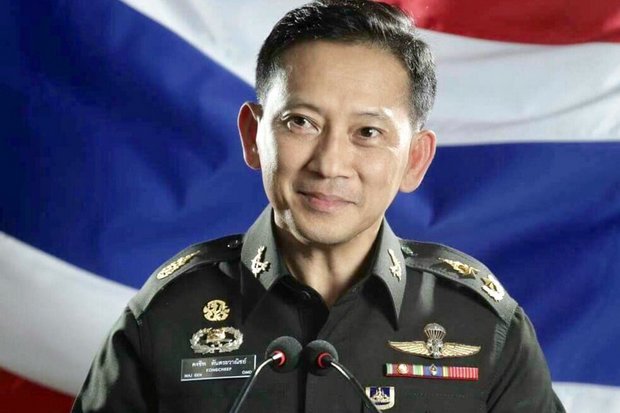
The military-led committee working on reconciliation has suggested an amnesty will not be included in the package.
"We need to remember that reconciliation is not an amnesty," said Maj Gen Kongcheep Tantravanich, chairman of the subcommittee in charge of the public relations campaign, under the preparation committee for reconciliation.
Maj Gen Kongcheep, also the Defence Ministry's spokesman, was citing public feedback after the panel organised forums in four regions across the country from April 28 to May 8 on national reconciliation.
The events followed the gathering of the views from politicians, the business community and people's sector from Feb 14 to April 5.
He said people believe past political conflicts partly stemmed from different ideologies and interests pursued by political parties.
The other reasons included a lack of political understanding and failure to uphold the law in governing the country. This led to injustice, the root cause of conflicts and social instability, Maj Gen Kongcheep said.
Political parties should be developed to become political institutions with clear ideologies, he said, adding they are also required to screen capable personnel to be picked by voters at an election.
The parties must not be manipulated by any particular groups and it is important that people who enter politics must have morality and ethics and adhere to good governance principles.
"They must accept the results of the elections which are free and fair," said Maj Gen Kongcheep, citing the people's opinions, adding politicians must use the parliamentary mechanism as a way to tackle political conflicts, while refraining from launching smear campaigns which could "sow the seeds of hatred".
The government must proceed with political reforms and create a conducive atmosphere for reconciliation, which should lead to the next election, he said, adding peaceful solutions must be adopted to solve political conflicts.
Independent agencies should also be supported to work with transparency and integrity and they should be subjected to scrutiny to ensure their political impartiality.
Efforts must be made to lay out rules on the election which are widely accepted, and harshly punish politicians who commit malfeasance.
People also suggested the easing of restrictions on political activities, he said.
People should be supported to understand democracy correctly, he said, insisting efforts need to be made to enhance decentralisation and public participation in scrutiny of local administrations.
Meanwhile, army chief Chalermchai Sitthisat, the head of a panel assigned to draw up a social contract for national unity, said his panel received information on how to foster reconciliation from a subcommittee processing recommendations on reconciliation led by Supreme Commander Surapong Suwanna-at.
The drafting of the social contract is likely to be completed on Thursday. After that public forums in four army regions will be called to boost awareness of the social contract.